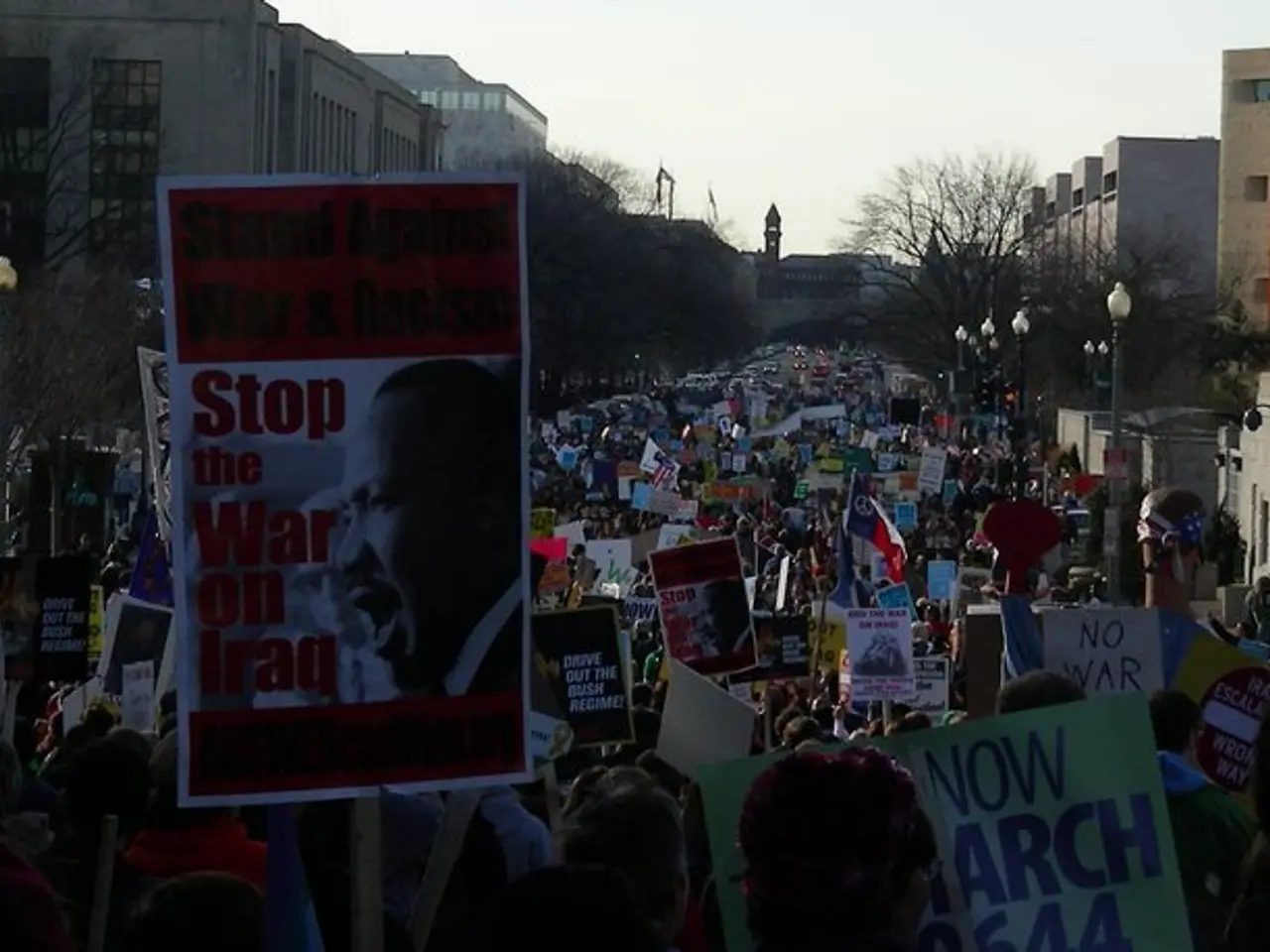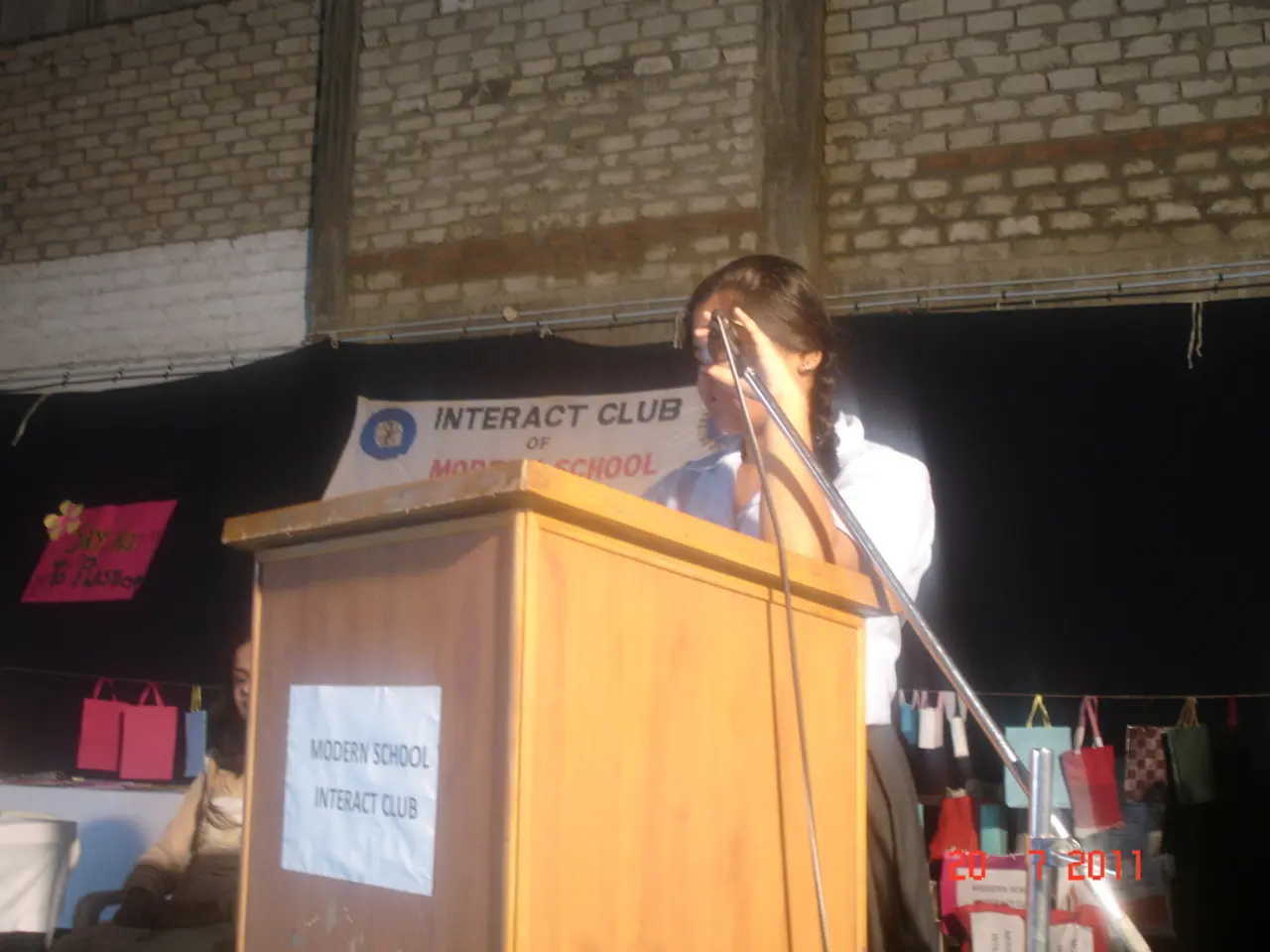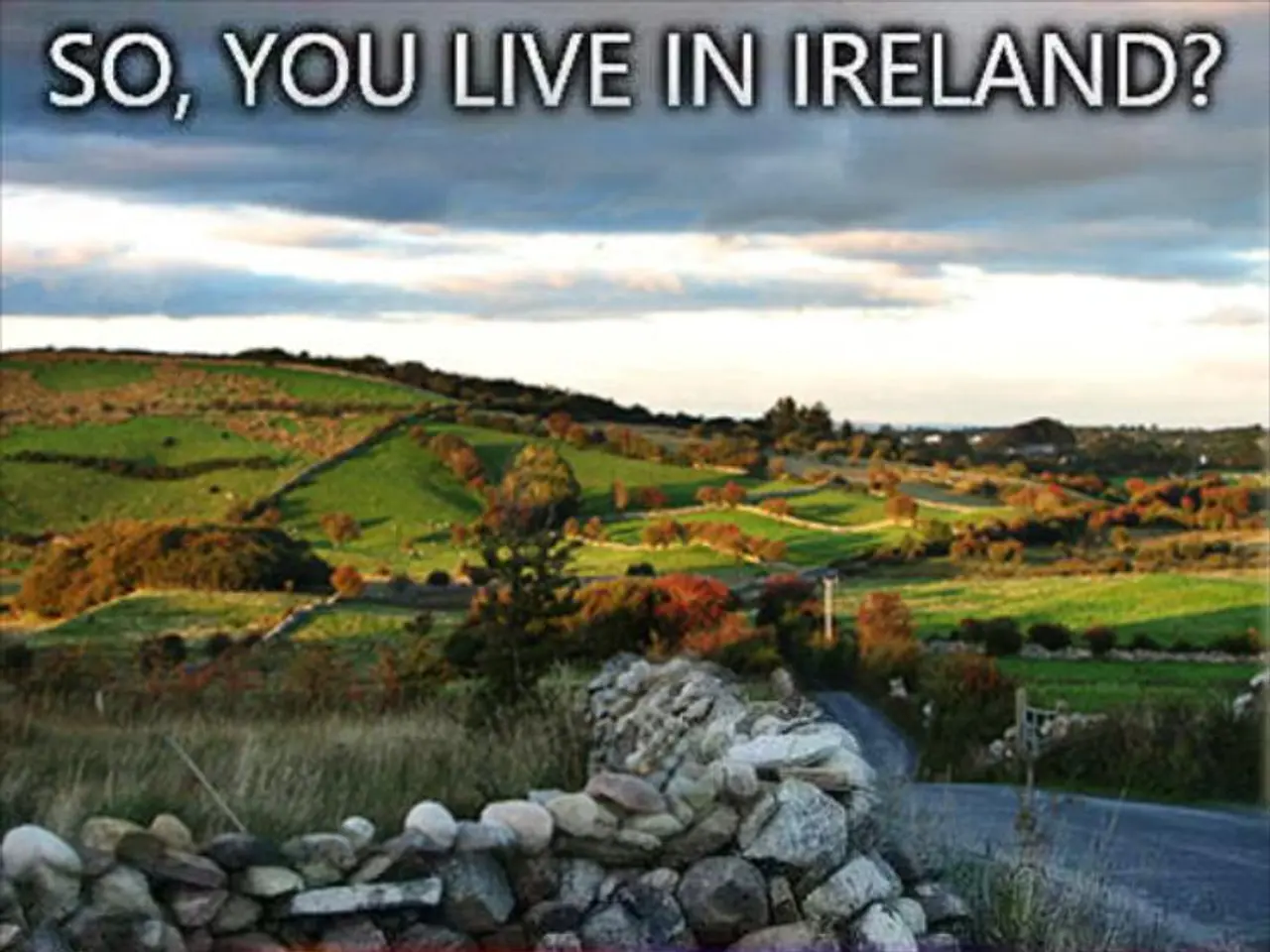Protesters in Kenya encounter water cannon and tear gas from police forces, escalating anti-government sentiment.
In the heart of East Africa, Kenya has been grappling with a wave of protests that began last year and have intensified in recent months. The latest deaths in police custody and the shooting of an unarmed street vendor by police have further fuelled public outrage.
The timeline of events began in early June 2025, when Albert Ojwang, a teacher and blogger, was arrested at Nairobi's Central Police Station following allegations of tarnishing the reputation of the Deputy Inspector General of Kenya Police Service, Eliud Lagat, via social media posts. Ojwang was found unconscious during a routine cell inspection on June 9 and was rushed to Mbagathi Hospital, where he was declared dead shortly after arrival. His death in police custody sparked widespread protests against police brutality and government conduct.
On July 7, 2025, the anniversary of the pro-democracy protests known as "Saba Saba Day," nationwide anti-government demonstrations escalated. Clashes between police and demonstrators resulted in at least 10 deaths and dozens of injuries, with reports of police using tear gas and water cannon to control the protests. These protests marked the continuation of public dissent fueled by longstanding concerns over police violence and impunity.
Following Ojwang’s death, the police suspended all officers who were on duty or involved in the incident. The Independent Policing Oversight Authority (IPOA) was engaged to commence a formal investigation into the circumstances of his death. However, police violence has persisted, contributing to ongoing tensions and repeated protests. The government has faced criticism for failing to adequately address police impunity and to curb brutality, as highlighted by recent and past deadly crackdowns on demonstrators.
The Kenyan Human Rights Commission has accused individuals, described as "hired goons" sent by the state, of storming their offices and disrupting a press conference by Kenyan mothers calling for an end to arbitrary arrests, enforced disappearances, and extrajudicial killings targeting protesters ahead of Saba Saba demonstrations. The Kenyan government's actions and statements regarding the Saba Saba demonstrations have further intensified public outrage.
The protests have stirred anti-government resentment among Kenyan youths, who have been at the forefront of these demonstrations, sparked by allegations of corruption, police brutality, and abductions of government critics. The situation remains volatile, with public demands for accountability and reform continuing amid government efforts to manage unrest through policing measures.
The Saba Saba demonstrations are ongoing, with Kenyan mothers participating in a press conference to voice their concerns. The Kenyan government has taken measures to prevent disruptions and maintain order during these demonstrations, with major roads leading into the city, as well as the Kenyan Parliament building, the president's office, and residence, being barricaded ahead of the demonstrations.
The Kenyan police and government have been contacted by CNN regarding the allegations of violence and repression against protesters. The protests have resulted in numerous casualties, with at least 16 people killed and hundreds injured during anti-government protests last month. Dozens more died during the anti-tax demonstrations in 2024.
Interior Minister Kipchumba Murkomen has stated that security agencies are on high alert to deal decisively with criminals and other elements of ill intent who may seek to infiltrate peaceful processions to cause havoc, mayhem, or destruction of property. However, the Kenyan Human Rights Commission is calling for an end to violence and repression against protesters.
As the situation unfolds, Kenya continues to grapple with the complexities of balancing security and the rights of its citizens, with public demands for accountability and reform echoing through the streets.
- The ongoing Saba Saba demonstrations in Kenya, sparked by allegations of corruption, police brutality, and abductions of government critics, have not only intensified within the country but also gained worldwide attention, capturing the attention of global news platforms like CNN.
- Amidst the escalating tensions, politics in Africa, particularly Kenya, have been dominated by discussions surrounding police violence, impunity, and the government's response to ongoing general-news events, including crime and justice issues, reflecting a volatile state of affairs.








